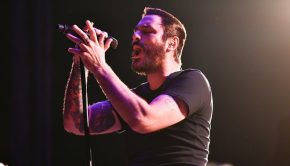Why Failure is Necessary: Connor Cahill’s Take on Resilience in Business
Failure isn’t a word most people like to hear. But for Connor Cahill, the 21-year-old CEO, it’s just part of the process. Building an eight-figure empire and leading hundreds of employees along the way hasn’t been a smooth ride for him. In fact, he’ll tell you the road to success is paved with missteps, setbacks, and moments that make you question everything. But that’s where the growth happens.
What kept Connor going wasn’t just sheer determination—it was his disciplined approach to life. As a CEO, he prioritizes staying sharp in every aspect—physically, emotionally, and spiritually. His days often start with cold plunges to clear his mind, followed by intense workouts that keep him physically at his peak. He’s an avid reader, using books to expand his thinking and fuel his strategies. His remarkable memory allows him to recall intricate details and connect dots that others might miss, making him a sharper, more efficient leader. Connor’s commitment to self-improvement and helping others isn’t just part of his routine—it’s part of his success.
There were times when things looked promising. Revenue hit $100,000 a month at one point. But then it would plummet back to zero. It wasn’t just frustrating—it was exhausting. “When you’re in the middle of it, it feels like all the effort is for nothing,” he admits. Still, he pushed on, always keeping his eyes on the bigger picture.
Connor doesn’t sugarcoat what failure feels like. It’s hard. It’s messy. But it’s also necessary. “Every time we hit a wall, we learned something,” he says. Those lessons didn’t just make him a better entrepreneur; they shaped the way Agency Vault operates today.
One of the biggest lessons he learned? You can’t take failure personally. It’s not about you—it’s about the process. “If you focus on the end goal, the setbacks don’t sting as much,” he explains. For Connor, every mistake became an opportunity to adjust, pivot, and come back stronger.
It’s easy to look at Connor’s success now and assume it was a straight path. But the reality is much different. He talks openly about the moments when doubt crept in. “There were days I thought, ‘Is this even worth it?’” he says. But those low points forced him to dig deeper, to figure out why he was doing it all in the first place.
What’s interesting about Connor is how he sees failure as a teacher. He doesn’t see it as a final stop—it’s a step forward, even if it doesn’t feel like it at the time. “You have to see the value in what went wrong,” he says. “If you don’t, you’re just spinning your wheels.”
This mindset has carried over into the software company he now runs. The company’s culture embraces experimentation, knowing not every idea will work. “We’ve built a space where it’s okay to fail,” Connor explains. For him, it’s about creating an environment where people aren’t afraid to try, even if they fall short.
Connor also talks about how failure connects people. “When you’re struggling, you meet others who’ve been through the same thing,” he says. Those shared experiences create bonds that go deeper than casual networking. They’re built on understanding and mutual respect.
For anyone starting out, Connor’s advice is simple: don’t fear failure. “It’s not the end of the world,” he says. “It’s just a part of the journey.” He believes too many people let the fear of messing up hold them back. But in his experience, the only way to grow is by stepping into the unknown and accepting that you won’t always get it right.
“You only fail when you’re pushing outside of your comfort zone,” Connor explains. “I use anxiety as a signal to understand what I need to work on and failure as a gauge of how far I’m pushing into the unknown. It’s essential for growth.” For Connor, failure isn’t a setback—it’s a necessary step forward. Connor’s journey is proof that failure isn’t something to avoid. It’s something to embrace. Every setback, every wrong turn, has brought him closer to where he is today. For him, resilience isn’t about avoiding failure—it’s about using it as fuel to keep going.
And that’s the real lesson. Success isn’t about never falling. It’s about getting back up, every time, and learning how to do better next time. For Connor Cahill, failure isn’t just a necessity—it’s the foundation of everything he’s built.
Tweet








![Will Rawls [siccer] stage performance - Photo by Jared Sorells.](https://www.thehypemagazine.com/wp-content/uploads/2025/03/Will-Rawls-siccer-stage-performance-Photo-by-Jared-Sorells-50x50.jpg)
















